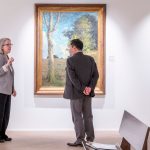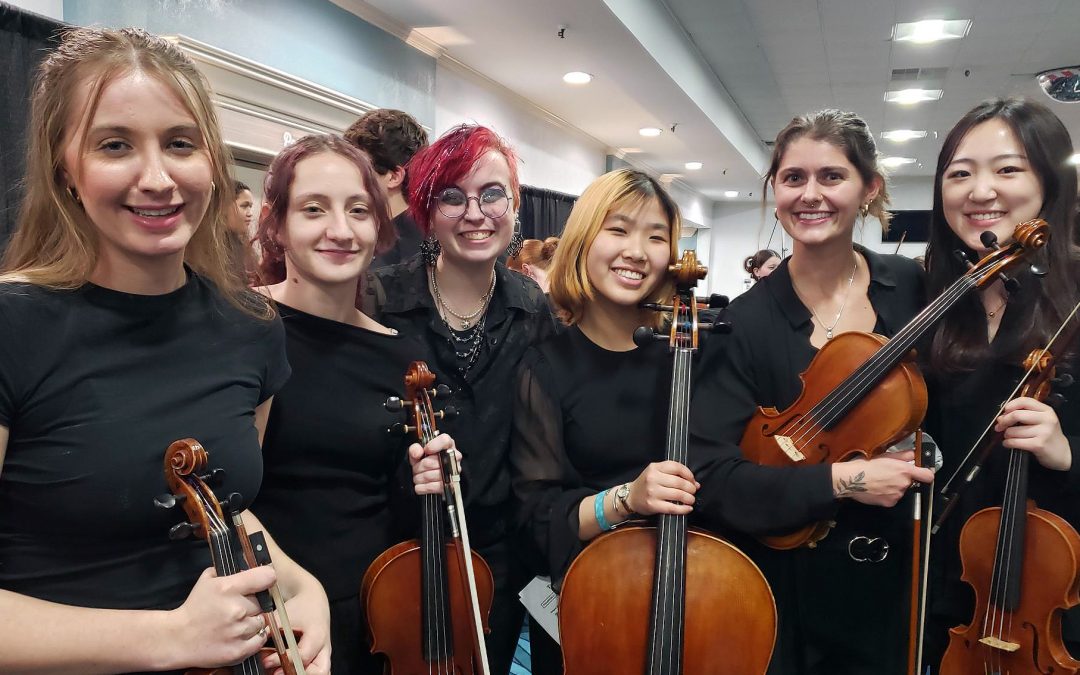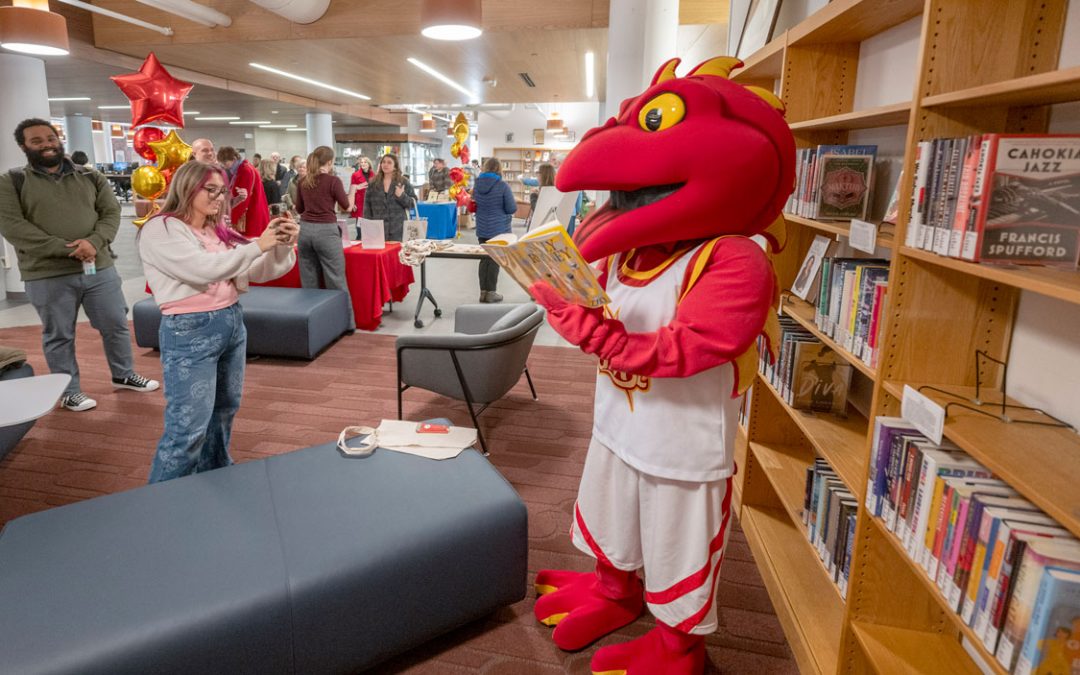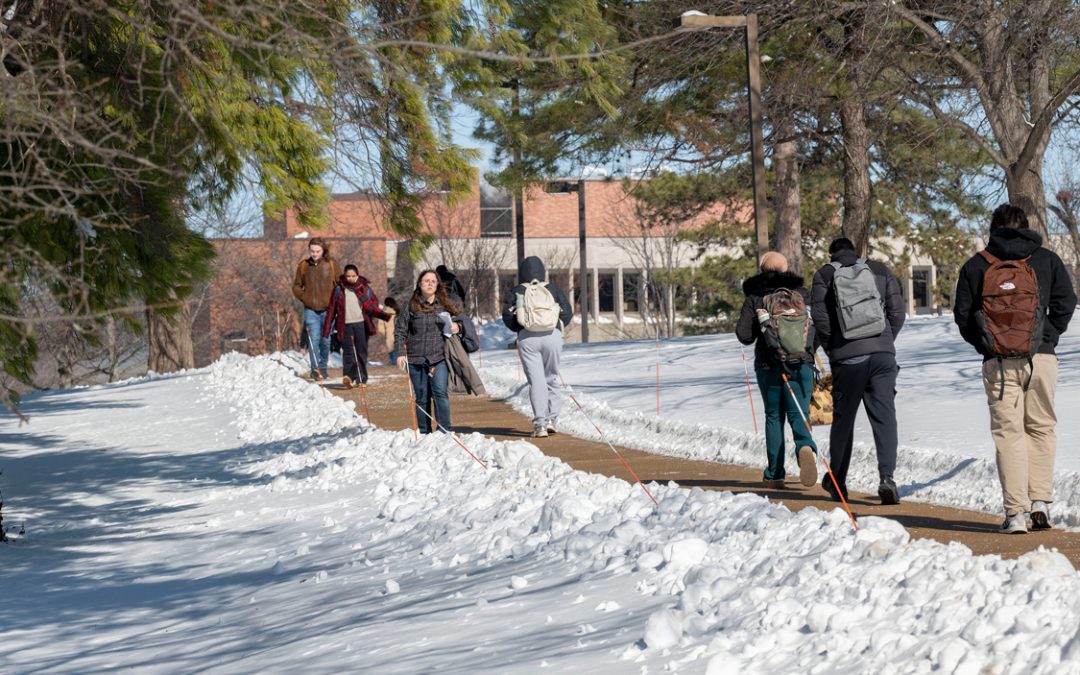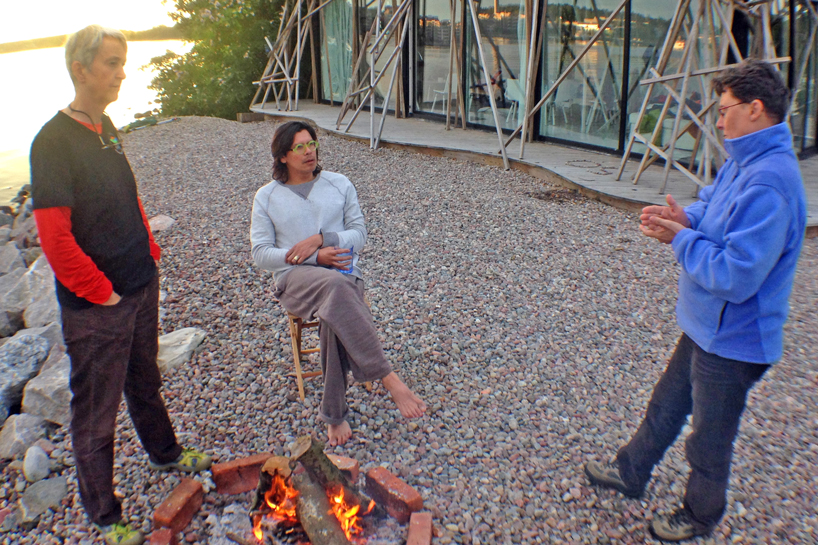
UMSL scholars Ann Talyor (left) and Ralph Córdova (center) talk with colleague Phyllis Balcerzak during their time at Ideas Island, a private island just outside Stockholm. (Photo by Jeff Brierly)
“If you could have your own island to yourself, what would you create?”
That question resonated with Ralph Córdova when he saw it come across a Twitter feed.
“What could he do?” thought Córdova, assistant professor in the Department of Educator Preparation, Innovation and Research at the University of Missouri–St. Louis. The multiple possibilities in his mind were all drawn to the gravitational pull of a theory of action called ResponsiveDesign, one he and colleagues had developed.
He then followed the Twitter link to a website about Ideas Island.
“My question was, ‘What do you mean someone owns three islands, and he’s running a competition for people all over the world to submit ideas? And he’s going to select the best idea?'” Córdova said.
After a little more research, he discovered that Ideas Island was a real thing created by author and entrepreneur Fredrik Härén, who owns three private islands – two in Sweden and one in the Philippines. Härén selects several people each year to stay at the islands for one week and bring whomever they want with them to explore their creativity.
Córdova seized the opportunity. He immediately began filling out the online application, telling about his scholarly work of the Cultural Landscapes Collaboratory, also known as the CoLab, a liquid networked innovating community.
“I wrote that we are a group of educators from different areas who are all passionate about connecting teachers to a larger network of creativity, and we’ve developed over the past 10 years powerful processes that work. And we would like to have some time, some uninterrupted time, to really see how those pieces are connected – to really bring into the reach of every teacher the best of what we know,” he said. “Then one day I opened my email and it said, ‘Congratulations, you are going to Ideas Island.'”
Córdova’s team included Ann Taylor, associate dean of school and community partnerships in the College of Education at UMSL; Phyllis Balcerzak, science educator recently retired from Washington University and now working at UMSL and as a member of the CoLab, and Jeff Brierly, principal and creative director at Verb Editorial. In June, they traveled by plane, train and rowboat to arrive on a private island just outside Stockholm.
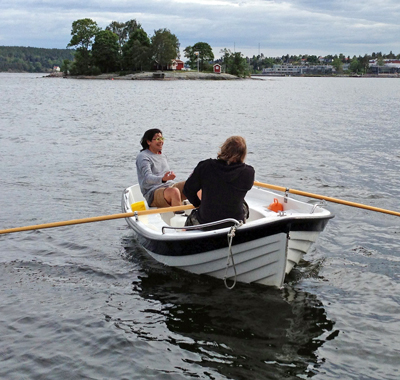
UMSL scholar Ralph Córdova (left) rows from the mainland to the island during his stay at Ideas Island. Daily trips were made for food and supplies. (Photo by Jeff Brierly)
“On the island there were small cabins, no running water, a composting toilet and a more modern building, all run from solar power,” Taylor said. “We joked that it was summer camp meets IKEA.”
She said the process was relaxing and exhausting, having the opportunity to completely focus on ideas and ways to support both educators and researchers without any outside distractions was priceless.
“We moved into a creative space of trust and collaboration,” Taylor said. “This was conceptual work; this was us talking about ideas and theories, and how they fit, and new ways to see possibilities.”
Several great ideas sprouted from the week. Córdova likens them to hatching “eggs.” Among the eggs hatched, were two that would solve long-standing challenges in education. One was the concept for an app — grounded in the learning sciences — that would enable educators to cultivate and network-rich, subject-based learning communities through sharing real-time experiences and practices. A second prototype they created is a forthcoming curation of innovative course structures centered on the improvement sciences for K-12 educators seeking to become teacher-leaders of creative learning communities.
“The big thing I came back with was, ‘Wow, we could create something amazing that maybe we couldn’t have anticipated…when we come together with a suspension of judgement,'” Córdova said.
These intentional castaways on Ideas Island returned poised to scale out their work in schools in a systematic way and collaborate to take schools to next level, from wherever they are now.
“And so now we tell ourselves, ‘If this is what we can create when three CoLab leaders harness our ResponsiveDesign process in an environment of peace and creativity, then there is no limit to what we can grow in the new ED Collabitat in the College of Education,’” said Taylor referring to a new collaboration space under construction on UMSL’s South Campus.








